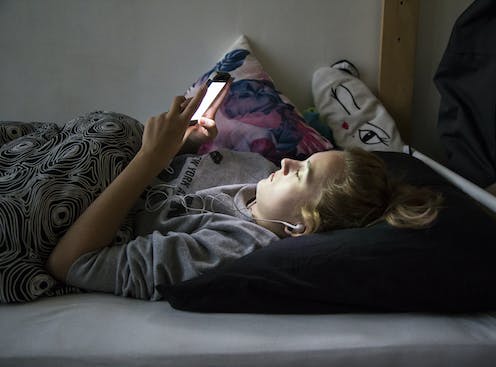
It took a half century for the first American Surgeon General Report to establish the link between tobacco and lung cancer. In response, companies infiltrated media and genetically modified tobacco leaves to make them even more addictive.
Curiously, tech companies developed similar compelling algorithms to create dependence among users — these technologies appear innocuous, but should be regulated. There are objectionable consequences regarding the influence of algorithms because they manipulate users by creating false perceptions, dependencies and addiction.
Today’s youth are among the first generations to not have experienced life before the internet. For many, their most important generational memory will be that of security concerns associated with terrorism or the recent pandemic.
Advancements in communications and internet technologies have produced a virtually integrated world; parents, guardians and educators struggle to make sense of how to manage youth online.
Table of Contents
Designed to be addictive
Research in neuroscience has established that adolescence lasts into one’s 20s — and beyond for youth with neurodevelopmental disorders — making universities a prime site for addressing and managing problematic social media use.
Social media are designed to be addictive — driven and reinforced by dopamine. Teens and emerging adults are susceptible to acceptance and rejection through social media, making them particularly responsive to such media and emotionally addicted.
Daily use of social media is associated with a significantly increased risk of self-harm and depression for adolescents. The added sleep cycle disruptions explain part of the association with depressive symptoms.

(Shutterstock)
Even moderate screen use is associated with mental health difficulties that require medication. The lockdowns caused by the COVID-19 pandemic only aggravated the situation.
Finding belonging
Youth peruse social media to derive a sense of belonging or to avoid challenges in their offline lives. Compared to live interactions, online socialization has been associated with intolerance to negative emotions and poor concentration.
As a result, youth experience an inability to manage frustration, fear, sadness and academic difficulties. These risks could lead to problems in education, work and relationships.
One study revealed that young people were motivated to scroll as a coping mechanism or out of habit or boredom. The researchers found that staying off social media for one week led to less FOMO — the fear of missing out on social events.
Another study found that staying off social media for one week led to significant reductions in depression and anxiety in 154 young adults. In yet another study, university students were instructed to limit their use for each application to 10 minutes daily, while a control group used social media as usual. The group taking a break reported an overall improvement in well-being, achieved mainly through sleep quality.

(Shutterstock)
Short breaks from being online — even as little as two and a half hours at a time — has a positive effect on perceived life satisfaction. A study of 65 university students used daily journals to track social media use and experienced emotions. The control group used social media as usual, but the group who abstained experienced improved behaviors and feelings during and after abstinence.
Overcoming addiction
Weaning someone off social media is similar to giving up a food, drug, gambling or alcohol addiction. Cognitive behavioural approaches — such as keeping a daily journal, reading on paper, listening to music or podcasts, planning social activities, sharing meals with friends and family, physical activity, active transportation, a daily gratitude practice and bundling mundane activities with enjoyable ones — can help support the transition.
Such strategies create tolerance for solitude at times when a user may be tempted to go online. After giving up social media for a week, users experienced less distress, more active behaviour, and a more positive outlook on how to live life more mindfully and efficiently.
There is consensus that social media is deliberately designed to introduce and sustain addiction. The overuse of social media is detrimental to well-being. Therefore, we suggest that universities launch a “challenge” campaign that sensitizes and discourages leisure screen use for a period of 72 hours each semester to foster student organizational, affective, and cognitive growth. This would set the stage for better life-long habits and success.
![]()
The authors do not work for, consult, own shares in or receive funding from any company or organization that would benefit from this article, and have disclosed no relevant affiliations beyond their academic appointment.























